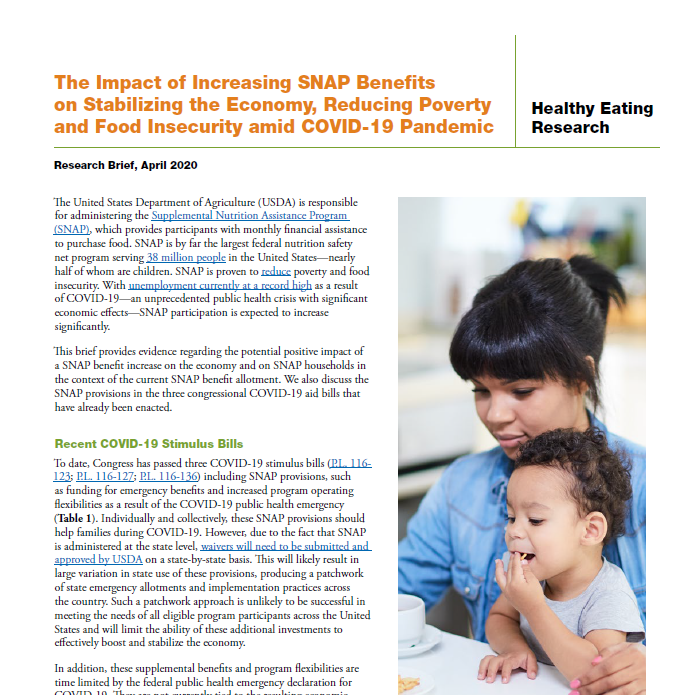The United States Department of Agriculture (USDA) is responsible for administering the Supplemental Nutrition Assistance Program (SNAP), which provides participants with monthly financial assistance to purchase food. SNAP is by far the largest federal nutrition safety net program serving 38 million people in the United States—nearly half of whom are children. SNAP is proven to reduce poverty and food insecurity. With unemployment currently at a record high as a result of COVID-19—an unprecedented public health crisis with significant economic effects—SNAP participation is expected to increase significantly.
This brief provides evidence regarding the potential positive impact of a SNAP benefit increase on the economy and on SNAP households in the context of the current SNAP benefit allotment. We also discuss the SNAP provisions in the three congressional COVID-19 aid bills that have already been enacted.

